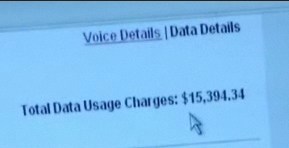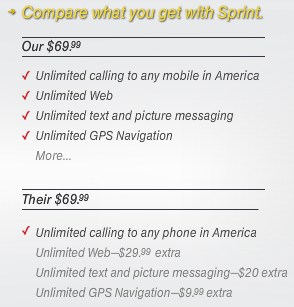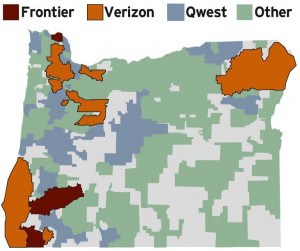 Woe to those who forget to sign up for a wireless data plan from Verizon Wireless.
Woe to those who forget to sign up for a wireless data plan from Verizon Wireless.
The cell phone provider recently sent a $16,000 bill to one Hot Springs, Arkansas family for wireless data usage racked up on a daughter’s phone the family didn’t cover with a wireless data plan.
Chris Brown couldn’t believe his eyes when he opened his phone bill online.
“The first thing I think of is, this thing costs more than my truck. It cost more than a house payment, I couldn’t fathom it, it’s mind-blowing,” Brown told KLRT-TV.
This isn’t the first time this has happened. A month earlier, the Brown family was billed $3,000 for similar usage and the family asked Verizon Wireless to shut off access to data services on the affected phone, but the charges kept on coming anyway.
Brown says once he got to look at the phone usage online, he saw that the phone was connected to the Internet when the family didn’t even know it.
 Verizon Wireless offers tips to customers with children:
Verizon Wireless offers tips to customers with children:
- Limit the times of day they’re allowed to make calls.
- Keep your kids from getting onto your own phone’s Internet by setting up a password.
- If you have a limited plan, you will get an alert and have to give approval before you exceed your number of kilobytes or megabytes for the month.
Of course, had Verizon Wireless followed through on what Brown asked for — shutting data access off altogether, none of this would have ever happened.
Other Little Rock customers, especially those forced to move from Alltel to Verizon Wireless, are running into similar experiences.
Among the horror stories:
“My son had the same problem. He was told he had unlimited internet usage and then received a bill for more than $7,000. Verizon had recorded a phone call from my son to customer service and that was the only thing that saved him. But it took more than 4 months and his phone service being disconnected twice before the situation was resolved.”
“I’m not a bit surprised at that ridiculous bill from Verizon! I had the same problem for months last year, to the point that I had to put unlimited texting on both my grandsons’ phones. Then to top that off, we got a bill that had goo-gobs of texting billed to my husband’s phone (to the tune of $9.30), which is rarely used at all. But, this is the killer–all the texts received on his phone were from Verizon, all 62 of them! As soon as my contract is up with them, I will be switching. All the time we had Alltel we never had any problems. The problems started as soon as Verizon took over.”
“I’m not one bit surprised by the ridiculous phone bill that the Hot Springs family received. I also received my first month’s bill from Verizon last year for over $1500. I almost had a heart attack. Verizon lowered the bill, but two months later, even though we carefully monitored the air time, we went over by four minutes and they charged me an additional $90. That was it for Verizon. They are a bunch of crooks. I hooked up to my local phone carrier for $34 a month and I haven’t had one problem since. Verizon should be investigated.”
[flv]http://www.phillipdampier.com/video/KLRT Little Rock Hot Springs family gets $16,000 cell phone bill 3-3-10.flv[/flv]
KLRT-TV in Little Rock reports on the Hot Springs family that got a $16,000 surprise bill from Verizon Wireless. (3 minutes)


 Subscribe
Subscribe






